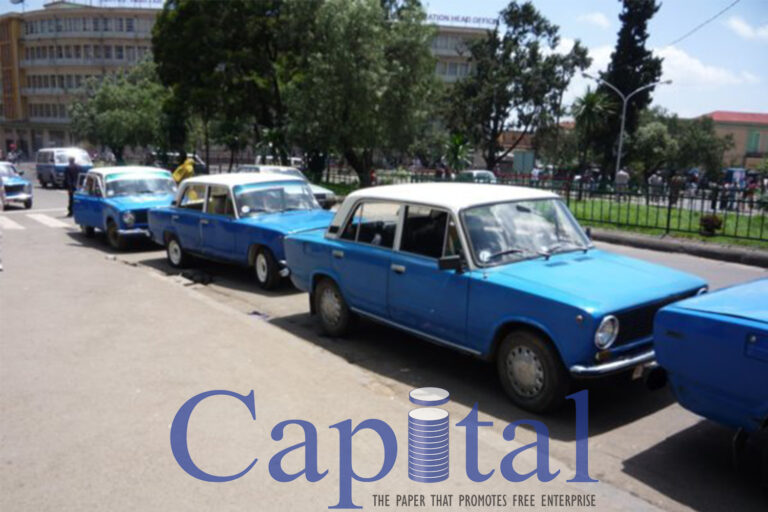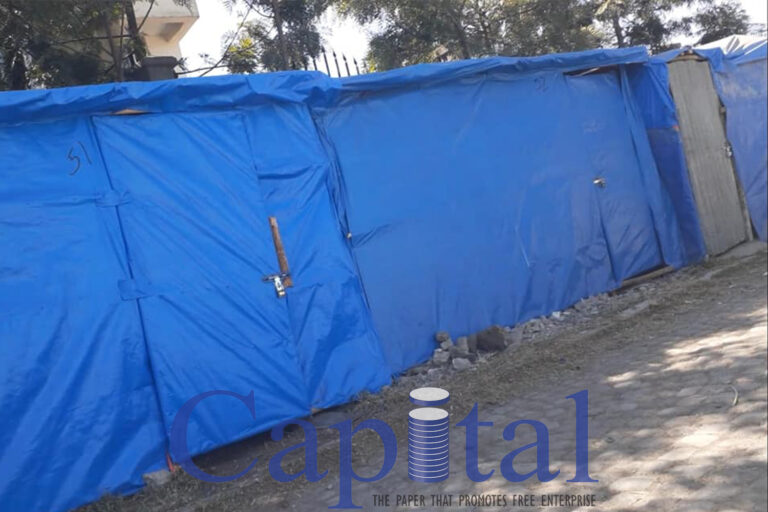Ethio-Telecom reportedly lost an estimated 100 million Ethiopian birr worth of losses in the last six months.
The state owned company disclosed about it as it is undertaking community engagement in the capital Addis Ababa to discuss about infrastructure security.
Frehiwot Tamiru, CEO of the company expressed her concern about the ever-growing damage that occurred on telecom infrastructure by well-organized criminals to the extent of killing guards. So far eight company guards were killed by the criminals.
The company held the discussion to create awareness and reveal the magnitude of the damage for practitioners and safeguard the infrastructures that tempted the organization to deliver quality service and expand its reach.
According to the CEO, telecommunication infrastructures faced 547 damages of which 90 percent were caused by intentional act where close to about 56 percent were destroyed deliberately for personal gain in the last six consecutive months.
Luck of integration within utility providers’ takes 14 percent, traffic accidents 18 percent and natural disaster take 12 percent in the damage of telecom infrastructure.
According to the chief executive, the number of infrastructure damage increased by 34 percent compared to the same period last year which triggers complaints from customers.
The act of vandalism takes place in daylight supported using the vehicles, ID and uniform of the company.
The cutting of Fiber and Copper Cable Network infrastructure caused repeated service interruption and incurring high maintenance cost to the country though infrastructures set to serve 20-30 years.
The company has 22,000km fiber cable throughout the country and got it difficult to safe guard the infrastructure though it deploys over 18,000 guards that work day and night. For this end close to 115 people were arrested and sentenced to up to nine years.
“The100 million birr theft and vandalism is equivalent amount of money needed to open additional 25 mobile service stations” she said and urges the stakeholders to collaborate with the company.
The 126 years old state monopoly, Ethio-telecom, has over 45million clients with 85.5 coverage all over the country.
Finally, she urged the general public to protect telecom infrastructure from damage adding that the company will engaged with the communities and stakeholders in creating awareness and join hands to protect.
Ethio Telecom loses 100 million birr in six months
Action to oust old blue taxis
The city administration has begun its action to change the old blue taxis to modernize the transportation in the city. The administration is negotiating with the owners of the old taxis to change them with the new latest taxis and electric taxis.
“The authority has planned to bring 10,000 cabs with 10 billion birr and the city administration will facilitate the finance by a loan secured from the Commercial Bank of Ethiopia” said Meare Mekonnen, deputy director at Addis Ababa Road & Transport Bureau (AARTB).
The authority starts negotiating with the bank to get a loan of 10 billion birr to finance the plan and the bank has given them a positive answer to give the loan, however if the commercial bank loan negotiation failed the authority has set a second option to get a loan from Addis Credit and Saving Institution.
There are tens of thousands of blue taxis registered and known to the Addis Ababa Road & Transport Bureau, of which around 8,097 blue taxi drivers have been registered within the last couple of months to change their old cars. The authority will buy the old cars from the owners and will sell the new taxis to them with long term loan payment with low interest rate.
The city administration believes the reform is needed and will only make the job hassle-free and convenient for both the driver and passengers. The city administration was beginning to recognize the old taxis were no-longer safe or convenient. They appear old and are not reflective of the government’s agenda to change the image of the city.
To many, the old blue taxis represent a battered image of the city as stuck in the past instead of one attempting to transition to a modern and fresher city. The newly imported taxis will be compatible on the often brutal and crowded streets of Addis Ababa, comfortable, safe and their use of technology.
Compared to the vehicles that were used to serve as taxis back in the late 1970s and early 1980s, the blue and white mini bus taxis are the longest in service. Even if their replacement is nearing with the recent announcement of the government’s intention to gradually replace them.
The blue old taxi industry is facing its biggest business challenge to date since the coming of yellow modern taxis which are upgraded with technologies. The reforms that are taking place currently are expected to change this. However according to some taxi drivers in the city, they fear that the city administration will ask them much money than their income.
Ethiopia lifts tax on semi-finished leather export
With the aim of boosting the production and export earnings, the country has decided to lift the tax on semi-processed leather exports, the Ministry of Trade and Industry announced.
The government made the decision because the tax imposed on export of semi-finished leather goods some years ago has seriously affected the tanneries and exporters, according to Teka Gebreyesus, State Minister of Trade and Industry who briefed reporters on Wednesday. He stated that as the tax imposed on the sector was huge and identified as the main factor for the country’s failure to increase the foreign currency earnings from the leather industry, the government has decided to lift the tax on export of pickles, white-blue and crest leather products.
As of this week all exporters of semi-finished leather are exempted from tax, according to Teka, who mentioned the starting of execution of the new proclamation 61/2012. It is stated that about 80 percent of skins and hides traders in Ethiopia has left the industry because they are discouraged by the tax. As a result, out of the total of 17 tanneries in Ethiopia five were closed and the remaining have been producing below their capacity. The tax has also discouraged foreign investors from investing in the untapped leather processing and export of Ethiopia.
It is also indicated that though Ethiopia has a huge potential for leather and leather goods products as the country is the leading in the number of cattle, no foreign direct investment was registered over the last seven years. With the aim of utilizing the potential of the sector, now the government is working to establish Leather City Park in Modjo town in Oromia region.
A practitioner in the sector blames the little attention given by the government from power supply to financial provision and limited supply of hard currency.
“The finance provided by the government doesn’t show the real commitment of the government as the industry needs attention with regards to access to finance in order to encourage the industry” said Yared Alemayehu, Manager of Waliya Tannery.
The recent move of the Ministry of Finance in waving the 150 percent tax on semi-finished leather, which had disabled the industry, is taken as the major outcome in the industry.






